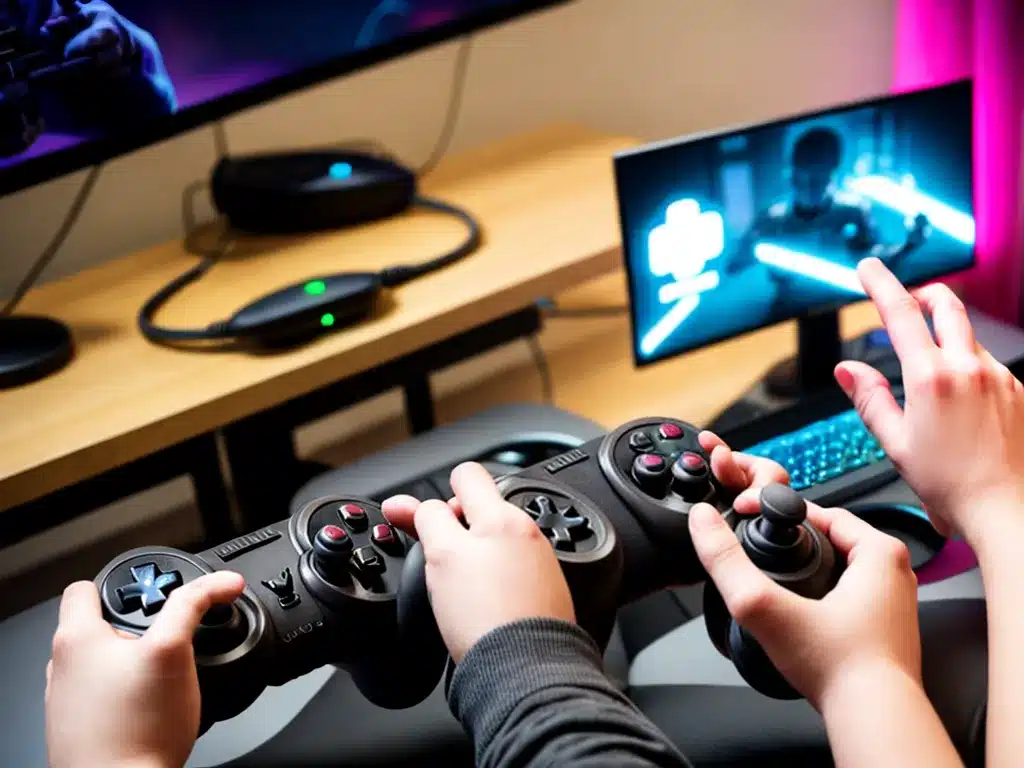
How Gaming Can Benefit Mental Health and Wellbeing
Introduction
Gaming has long been thought of as an unproductive pastime. However, research in recent years has shown that gaming can actually provide significant benefits for mental health and overall wellbeing. As someone who has struggled with anxiety and depression, I’ve experienced these benefits firsthand. In this article, I’ll explore the ways gaming can improve mental health, boost mood, reduce stress and anxiety, increase social connections, and more.
Improves Mood
Gaming releases dopamine, the “feel good” neurotransmitter in the brain. This can put you in a better mood and make you feel more motivated and optimistic. In my own experience, playing games for even just 30 minutes can lift my spirits when I’m feeling down. Researchers have found that gaming raises overall happiness levels and leads to positive emotion regulation.
Reduces Stress and Anxiety
Gaming provides an immersive distraction from anxious thoughts. Focusing on gameplay stops rumination and calms the body’s stress response. For me, getting lost in a good story for a while alleviates tension. Studies show gaming lowers cortisol, the primary stress hormone. It also decreases sympathetic nervous system activity linked to the fight-or-flight reaction.
Promotes Mindfulness
The concentration required for gaming keeps the brain focused in the present moment. This mindful state has been shown to reduce anxiety and improve mood. Unlike passive entertainment like TV, games engage the mind through challenge and interactivity. I find it extremely calming to shift my focus completely to a game. Hours can go by without a single anxious thought.
Fosters Social Connections
Multiplayer gaming allows players to interact with others for collaboration and community. Feeling connected to others is critical for mental wellbeing. I’ve made several close friendships through online games that have provided social support. Research shows gamers often form meaningful relationships and gain social capital from their participation.
Boosts Motivation and Achievement
The constant goal-setting in games creates a sense of motivation and achievement as you progress. I always feel an intense drive to complete objectives, unlock new items, and improve my skills. This gives me a strong feeling of accomplishment. Studies confirm gaming fulfils our need for competence and autonomy. It provides measurable growth and a stream of small “wins” and rewards.
Promotes Cognitive Benefits
Certain genres like puzzle, strategy, and action games can improve cognition. Researchers have found they can boost functions like working memory, attention, and cognitive flexibility. For me, immersive problem-solving in games feels great for my brain compared to passively watching TV. Games training could even help ward off cognitive decline.
Provides Distraction and Coping
Gaming serves as a positive distraction from painful thoughts and experiences. When I’m feeling extremely anxious or depressed, it helps redirect my mind away from negative rumination. Research has shown the immersive nature of games helps manage pain and provides emotional coping. For me, this temporary escape is a lifeline when I’m struggling.
Conclusion
Far from being a waste of time, gaming offers evidence-backed mental health benefits. It lifts mood, reduces stress and anxiety, fosters social connections, boosts motivation and cognitive abilities, and provides distraction and coping. As part of a balanced lifestyle, regular gaming has vastly improved my own mental wellbeing. However, those with gaming disorder should exercise restraint. For most people, gaming in moderation can be an incredibly helpful tool for enhancing emotional health and happiness.












